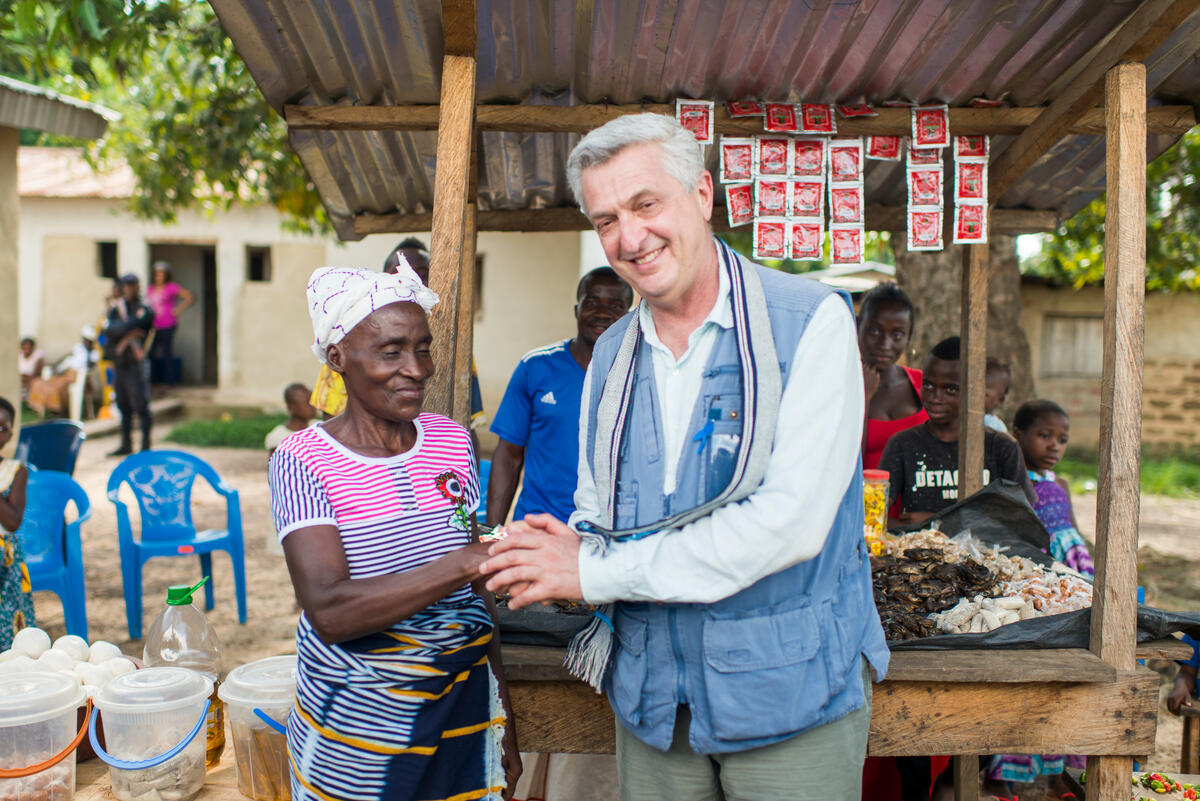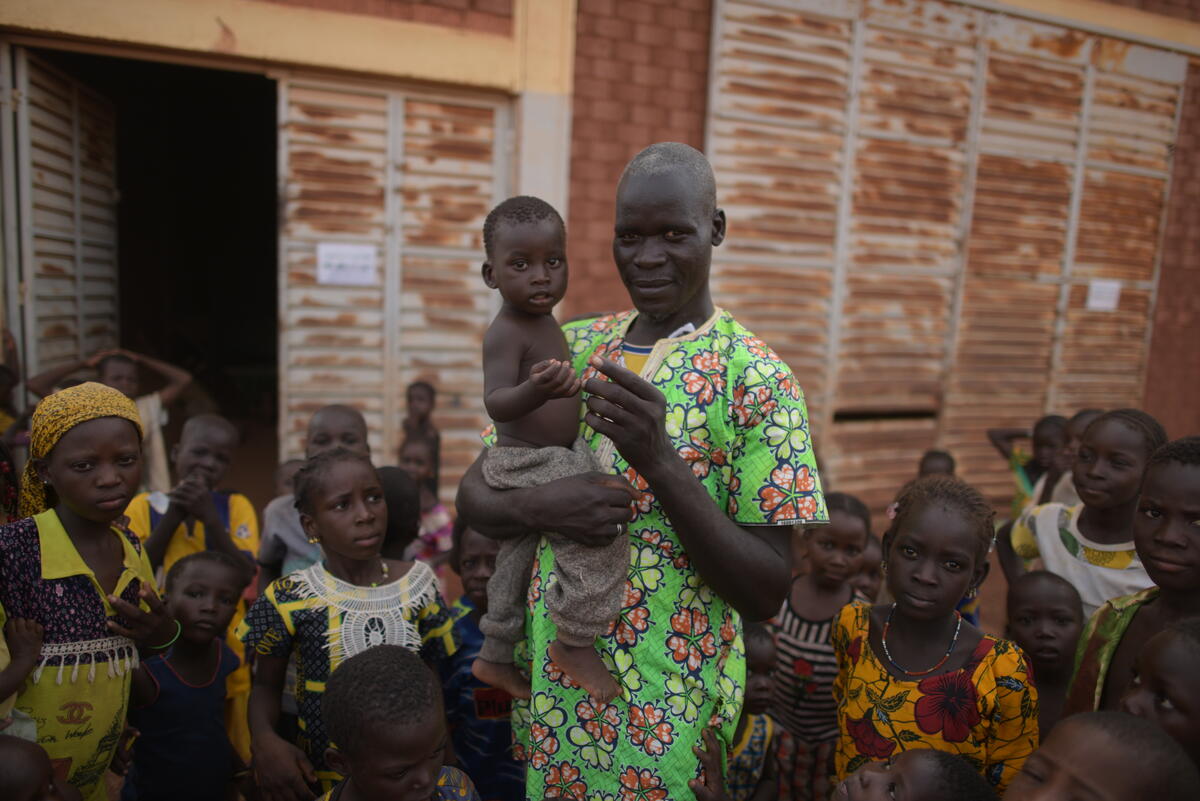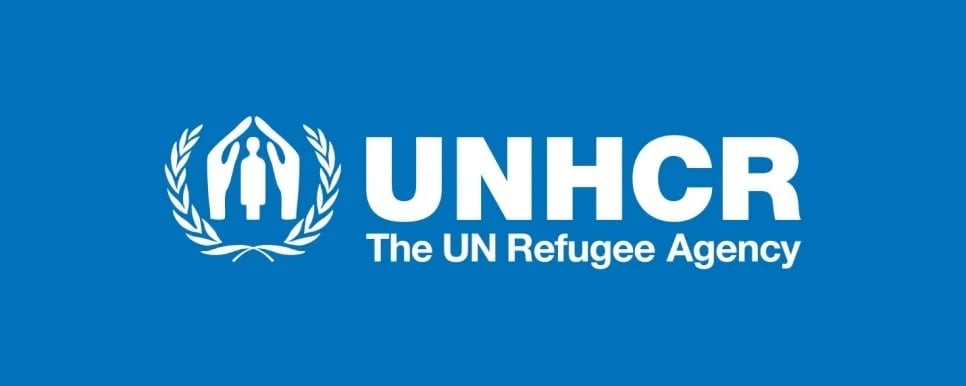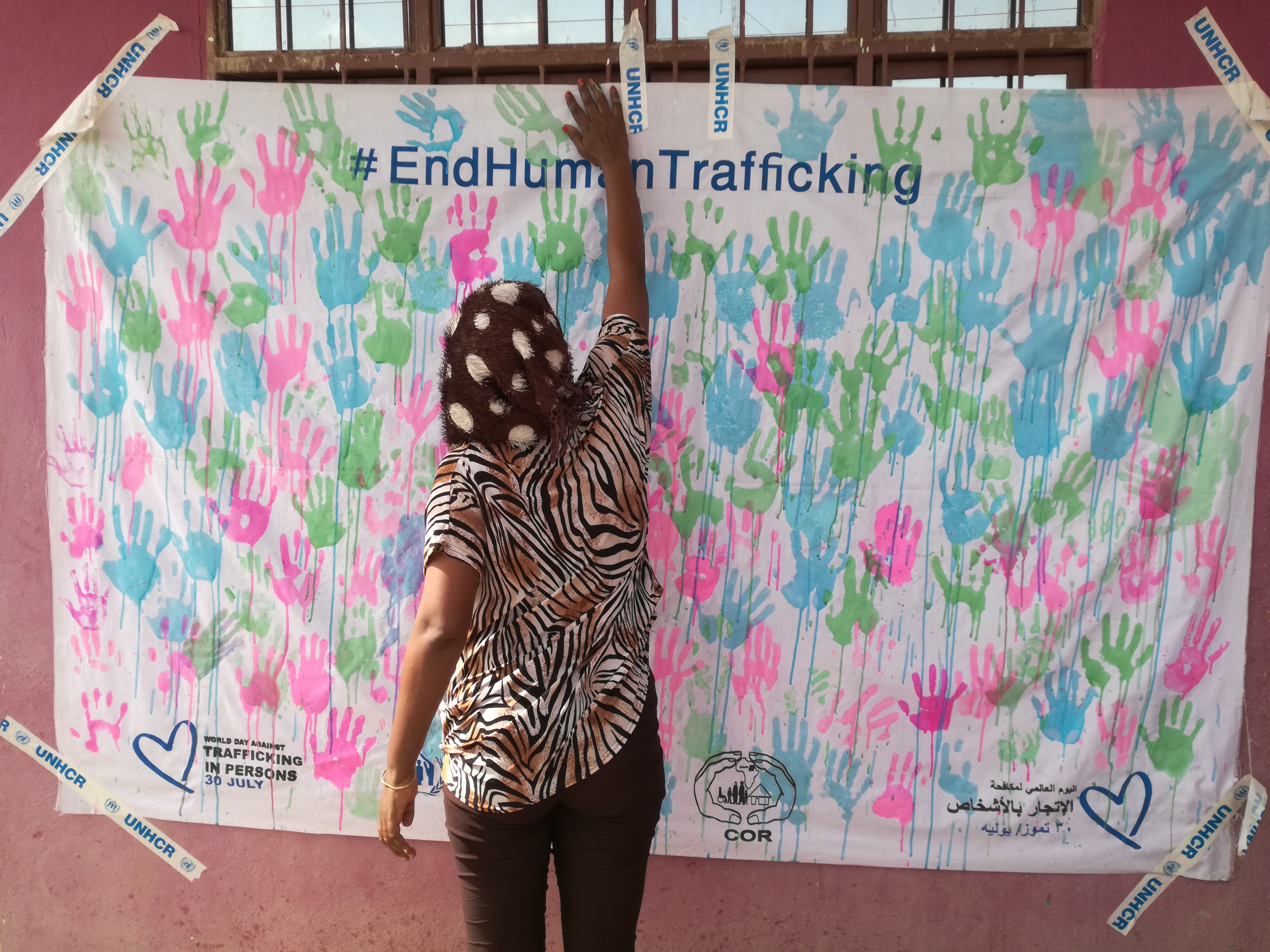Ivorian refugees continue to enter Liberia
Ivorian refugees continue to enter Liberia
Amid continuing political uncertainty in Ivory Coast UNHCR has been seeing further arrivals of Ivorians in northeastern Liberia. As of Saturday, an estimated 3,500 people had entered Liberia with new arrivals reported in villages along the border at a rate now of around 150 people per day.
In line with the Liberian government's non-encampment policy, the Ivorians are settling in local communities. Villagers have taken them into their homes and are sharing their own resources. UNHCR teams are registering and assisting arrivees, but the villages are spread far apart and with poor road conditions getting heavy trucks there is taking time.
Meanwhile in Guinea the number of newly registered Ivorian refugees in the southeast of the country is stable at some 200, although some of our partners reported further arrivals in Lola prefecture yesterday morning, which our teams are currently verifying. At the request of the local authorities, we have transferred the group to a transit center at Bosso, 18 km further from the border.
Those arriving in Guinea had walked two days through the Mount Nimba area. Some were barefoot and others with small children said they slept in the open. UNHCR provided them with warm meals and other assistance as they fled without personal belongings.
The refugees in both Liberia and Guinea come from a string of villages along the border from Danane to Guiglo in western Cote d'Ivoire. The majority are women with children, their husbands left behind. They urgently need food, clean water, sanitation facilities, clothing and basic hygiene items.
So far, we not seen refugee movements into any of the three other countries neighbouring Ivory Coast. We have nonetheless strenghtened our emergency preparedness.
Prior to the current crisis, UNHCR was assisting some 13,000 Ivorian refugees who went into exile mainly in Liberia (6,000), Guinea (4,000) and Mali (2,000) during the civil war in their country, which officially ended in 2005. We also help an additional 35,000 internally displaced people in western Cote d'Ivoire.









